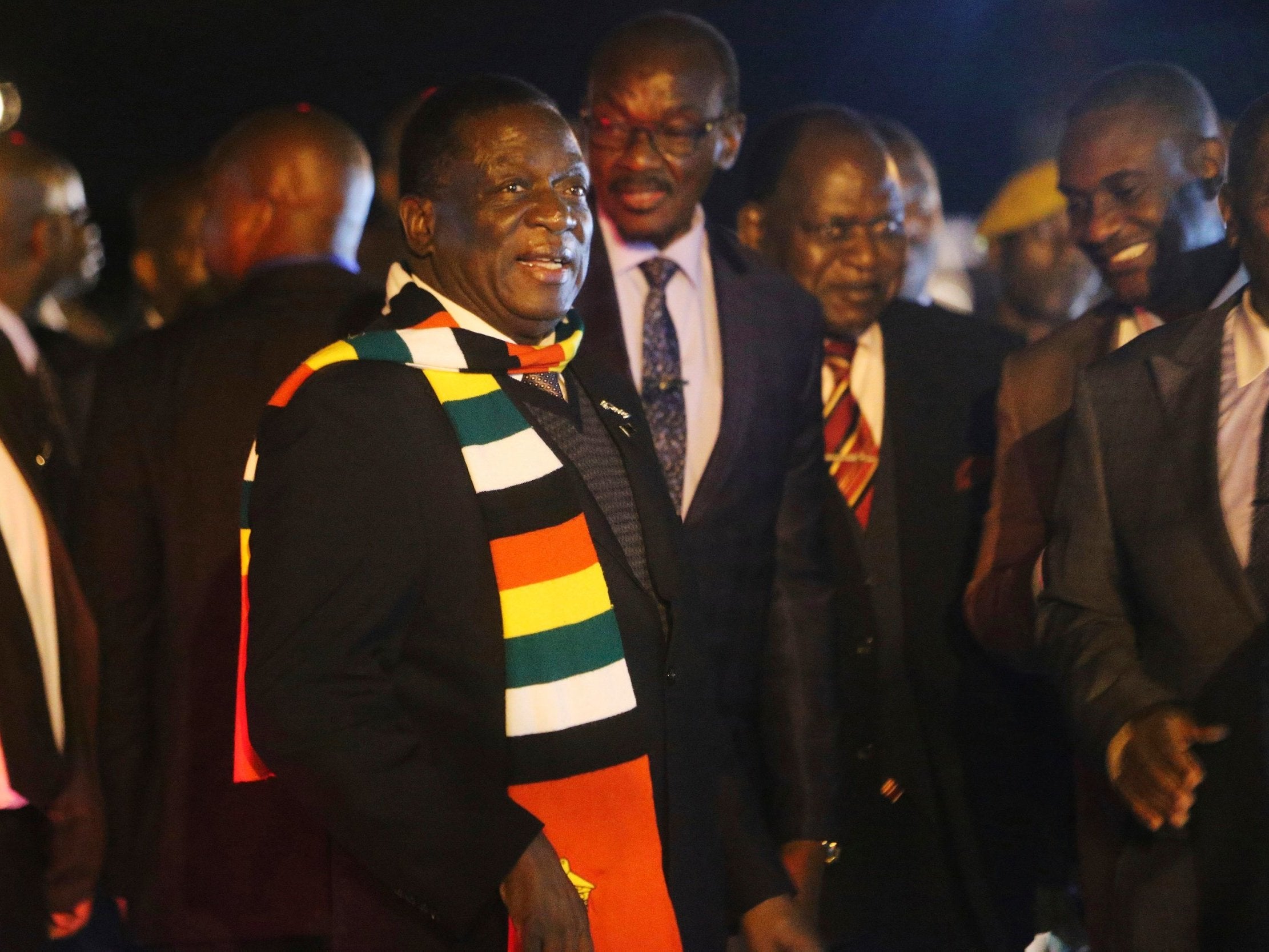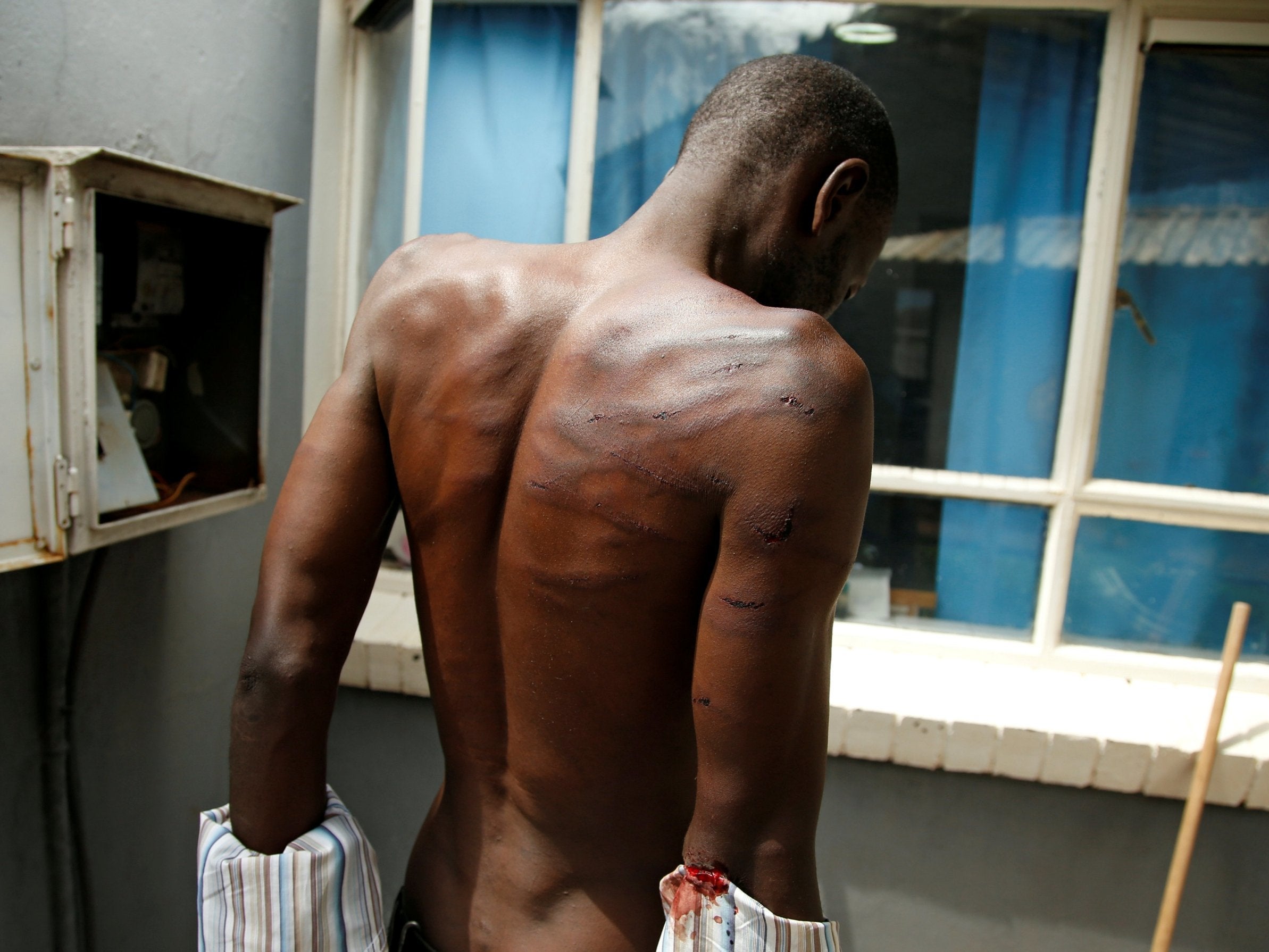Is the Crocodile able or willing to punish those responsible for Zimbabwe’s violent crackdown on dissent?
Analysis: President has vowed that ‘heads will roll’. But questions remain as to whether he holds enough authority to do so

Your support helps us to tell the story
From reproductive rights to climate change to Big Tech, The Independent is on the ground when the story is developing. Whether it's investigating the financials of Elon Musk's pro-Trump PAC or producing our latest documentary, 'The A Word', which shines a light on the American women fighting for reproductive rights, we know how important it is to parse out the facts from the messaging.
At such a critical moment in US history, we need reporters on the ground. Your donation allows us to keep sending journalists to speak to both sides of the story.
The Independent is trusted by Americans across the entire political spectrum. And unlike many other quality news outlets, we choose not to lock Americans out of our reporting and analysis with paywalls. We believe quality journalism should be available to everyone, paid for by those who can afford it.
Your support makes all the difference.Emmerson Mnangagwa, the Zimbabwean president, has promised an investigation into the excesses carried out by security forces during the latest strife in the country. “Heads will roll,” he declared, if the allegations are true, as he headed home after cutting short a trip to Europe.
The current round of violence started with protests following the doubling of fuel prices. The crackdown which followed led to at least a dozen people being killed and 80 treated for gunshot wounds, say human rights groups. More than 700 people have been arrested, including 11 opposition MPs, with doctors reporting evidence of “systematic torture” of prisoners.
The drastic rise in the previously heavily subsidised price makes petrol in Zimbabwe some of the most expensive in Africa. The government stated the hike had to take place, with the economy in deep trouble after decades of misrule by Robert Mugabe which has led to inflation of 40 per cent, soaring unemployment, a shattered infrastructure and chronic shortages.
But Mr Mnangagwa was very much part of that system, a vice president who only parted with the regime and went into exile after falling out with Mr Mugabe’s wife Grace, who was establishing her own power base within the ruling Zanu-PF party, and was intent on removing those who could block her ascent.
Mr Mnangagwa showed his cunning and survival skills – which earned him the sobriquet of “The Crocodile” – by emerging as the leader during the upheaval which followed the fall of Robert Mugabe and then winning the subsequent presidential election.

One of the reasons for his victory was the solid powerbase of Zanu-PF, and the inadequacies of the candidate from the opposition MDC (Movement for Democratic Change).
But there was also the feeling among many that, despite all their reservations about the old guard, Mr Mnangagwa may be the person to bring stability.
At an election rally in Harare, Mr Mnanagagwa’s daughter, Farai Mnangagwa Mlotshwa, said to me: “He knows that mistakes were made in the past and in many ways he is the one who is in the best position to put them right.”
Her father told her he will serve one term, added Ms Mnangagwa Mlotshwa, who was keen to stress that “he has been around for a long time and has the experience that is needed”.
There was obviously a large dose of family loyalty in all that. But the view that The Crocodile’s long memory of misdeeds may actually be helpful in ensuring they are not replicated, and helping a fractured society to repair itself, was also held by many western, including British, diplomats.
However the actions taken by the security forces – the shootings and the beatings, the arrests and closing down of the internet – following the fuel demonstrations are very reminiscent of the time of Mugabe.
And this, of course, is not the first time there has been brutal action by the security forces since the fall of Mugabe. In the days following the bitterly contested election I saw people being shot, when troops opened fire with live rounds, and stabbed with bayonets in the streets of Zimbabwe’s capital. And this after a protest that had largely been dispersed by police using teargas, baton rounds and water cannons.
The following day I met some of the injured who had been shot, stabbed and beaten with sjamboks – the heavy rhino-hide whips favoured by security forces of apartheid South Africa – gouging out deep scars.
The police later broke up a press conference being given by the opposition candidate, Nelson Chamisa, at the hotel where many of us journalists were staying: the extraordinary scenes were recorded by cameras of the international media and disseminated worldwide.
Mr Mnangagwa put out tweets regretting police action, and the information minister, SK Moyo, turned up at the hotel to offer further apologies and assure us that the press conference would take place after all – and that we should attend.
To add to the surreal nature of what was unfolding, a senior foreign diplomat who was speaking to Mr Mnangagwa at the time of the street fights said the president was not even aware troops had been deployed. He and other ministers seemed equally unaware of the hotel raid until it happened.
There were persistent reports of Mr Mnangagwa being at odds with his vice president, General Constantine Chiwenga, the former head of the armed forces. The general, and not the president, is said to have hosted a meeting of selected members of the Zanu-PF politburo, the evening before the troops went on to the streets.
The reports of a power struggle within the government continue to circulate. Whether President Mnangagwa is able to hold those responsible for abuse in the security forces, even if he actually wants to, and whether heads really do roll, remains to be seen. But the expectation of justice being done remains pretty low.
Join our commenting forum
Join thought-provoking conversations, follow other Independent readers and see their replies
Comments